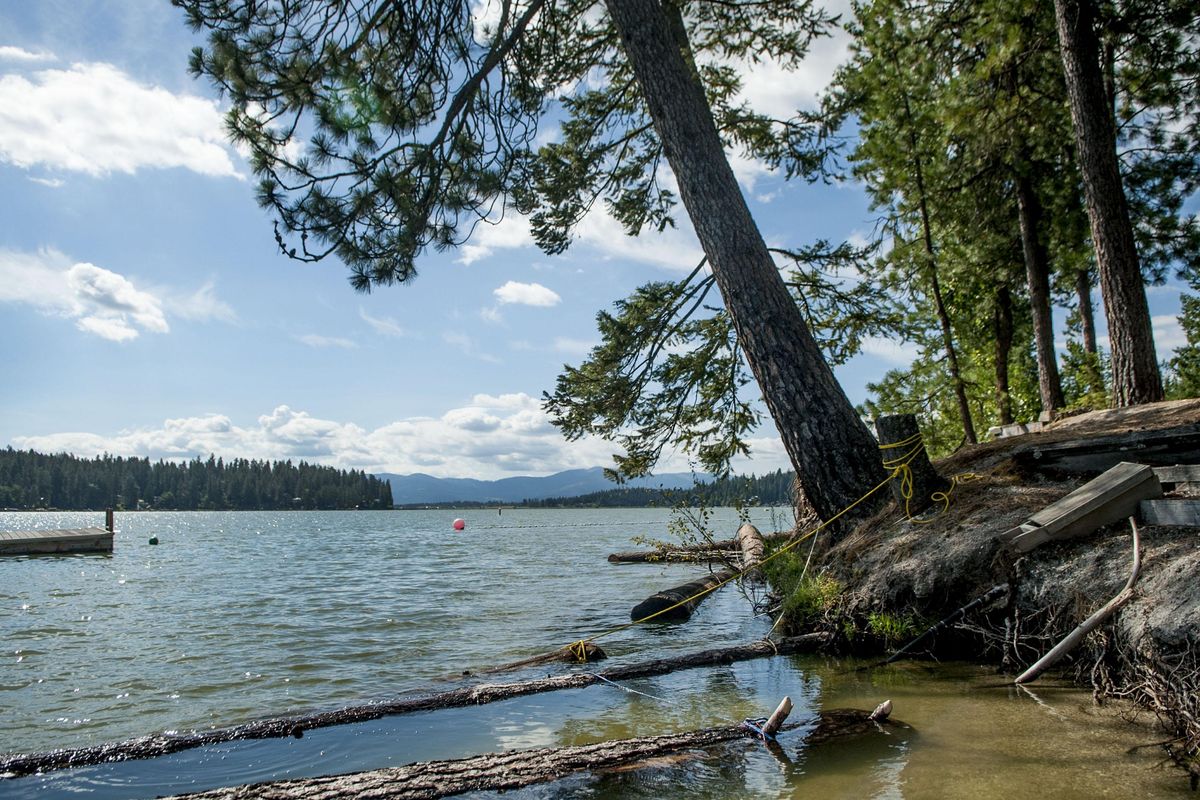$415,000 in state funds will help Newman Lake water quality

Efforts to keep algae blooms from taking over Newman Lake took a big leap forward when the state Legislature approved $415,000 in the capital budget for the Newman Lake Flood Control Zone District.
The district, which does do flood control, is largely focused on water quality these days. The money will pay to upgrade, replace and repair decades-old equipment that pumps oxygen into the bottom of the lake.
“It allows us to bring our equipment up to standards,” said advisory board chair Karen Stebbins. “It allows the water to be clearer.”
The district operates two aeration units that pump oxygen into the water. Until recently only one was functioning, Stebbins said.
Fellow advisory board member Dennis Rewinkel, a retired mechanical engineer, could teach a class on how the aeration units function and help keep the phosphorus that causes algae blooms at the bottom of the lake.
The need for the units dates back decades, Rewinkel said. The Otis Orchards Irrigation District used to draw water from the lake, which kept the water moving. After that stopped in 1968, the Flood Control Zone District was created to maintain the level of the lake.
But there was soon a new problem. In the 1970s and 1980s, high phosphorus levels in the lake led to algae blooms.
“They got severe enough that the county occasionally had to close the lake,” he said.
The aeration equipment was installed in 1992. Two units sit on land and piping runs to what’s called a Speece cone on the bottom of the lake that injects air into the water. In 1996 an alum injection system was added, which also helps trap phosphorus at the bottom of the lake, Rewinkel said.
“The equipment we’re operating right now treats the problem,” he said. “It doesn’t solve the problem, it treats it.”
The district is funded by 770 property owners who live immediately adjacent to the lake. The annual budget is $250,000, which doesn’t go far.
“We use a lot of electricity to run these units,” he said. “Purchasing the alum is another big expense.”
The district spent $70,000 replacing one of the aeration units two years ago, but much more is needed. “We have fallen behind on maintenance,” Rewinkel said.
Rewinkel said he’s been working with Spokane County Commissioner Josh Kerns and state Sen. Mike Padden to get money to pay for equipment repairs and upgrades.
“The technology today is vastly different than it was in 1992,” Rewinkel said.
There’s a long list of things to do with the money from the state, Rewinkel said. The district plans to replace the second aeration unit and replace an alum line that clogged up several years ago. The district was also told that a seal was breached on the Speece cone years ago.
“We’re going to figure out what happened to that seal and fix it,” he said.
They’ll also examine the Speece cone itself and the powerful pump housed inside. “That is way overdue for servicing,” he said.
Part of the problem in servicing the Speece cone and pump is its location on the bottom of the lake. “We have to bring in a barge with a crane on it,” he said.
The district also wants to see if the Speece cone can be moved to make it easier to get to. “It would be so much cheaper,” Rewinkel said. “We wouldn’t have to pay divers.”
The money from the state is a godsend because the district would have had a tough time coming up with that kind of money, he said.
Rewinkel said 85% of what the district deals with are water quality issues rather than flood control. While phosphorus is the main water quality issue, erosion has also increased significantly in recent years, washing huge chunks of beach and shoreline into the lake.
Stebbins said large boat wakes are the problem, and she heard of one homeowner who lost several feet of beach on the Fourth of July one year. “The erosion is terrible,” she said.
Stebbins, who lives in Shadow Bay, said she has a tree-lined waterfront rather than a beach. “I see the trees being undercut,” she said.
Rewinkel said it may be time to consider creating a new entity focused on the lake’s water quality, whether it’s related to erosion or phosphorus.
“Water quality is clearly the future problem we have to get a handle on,” Rewinkel said.